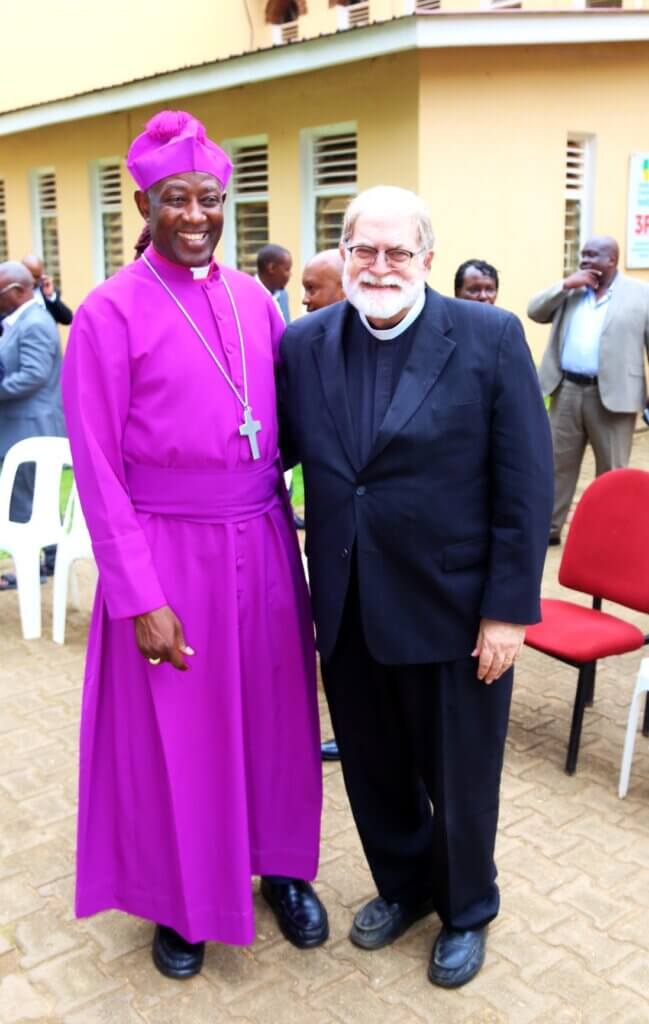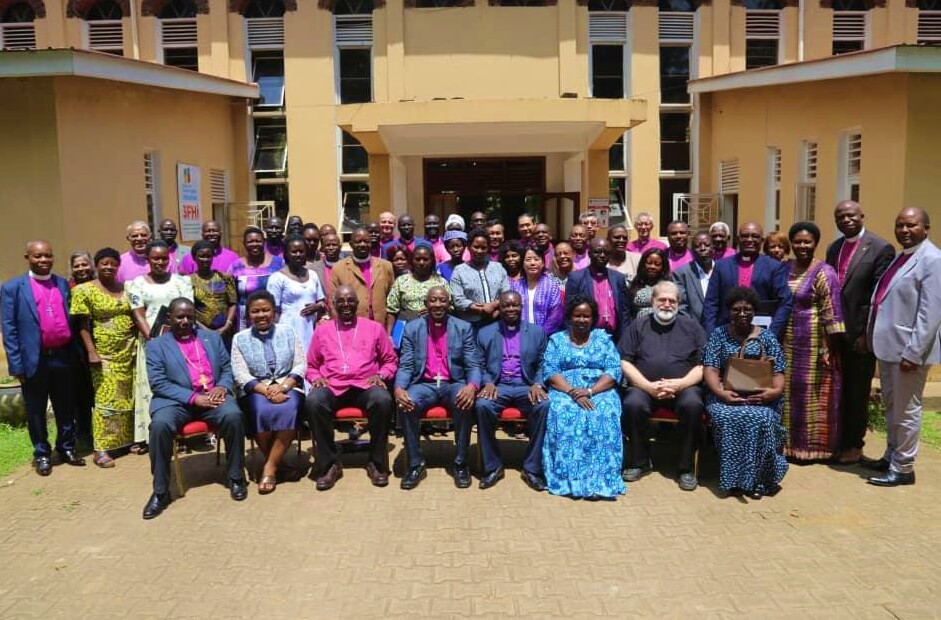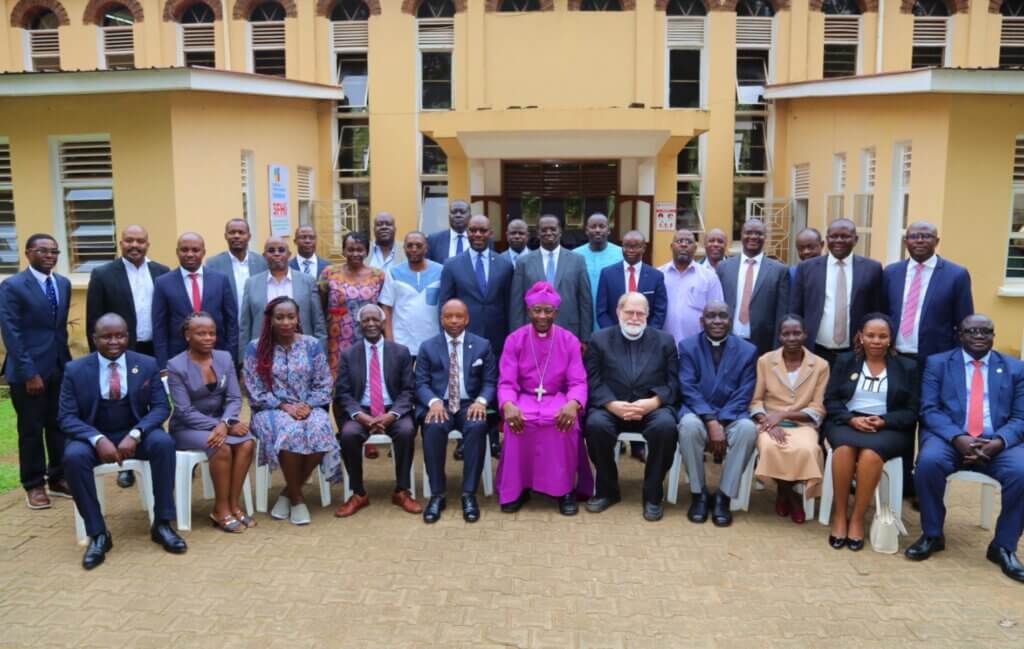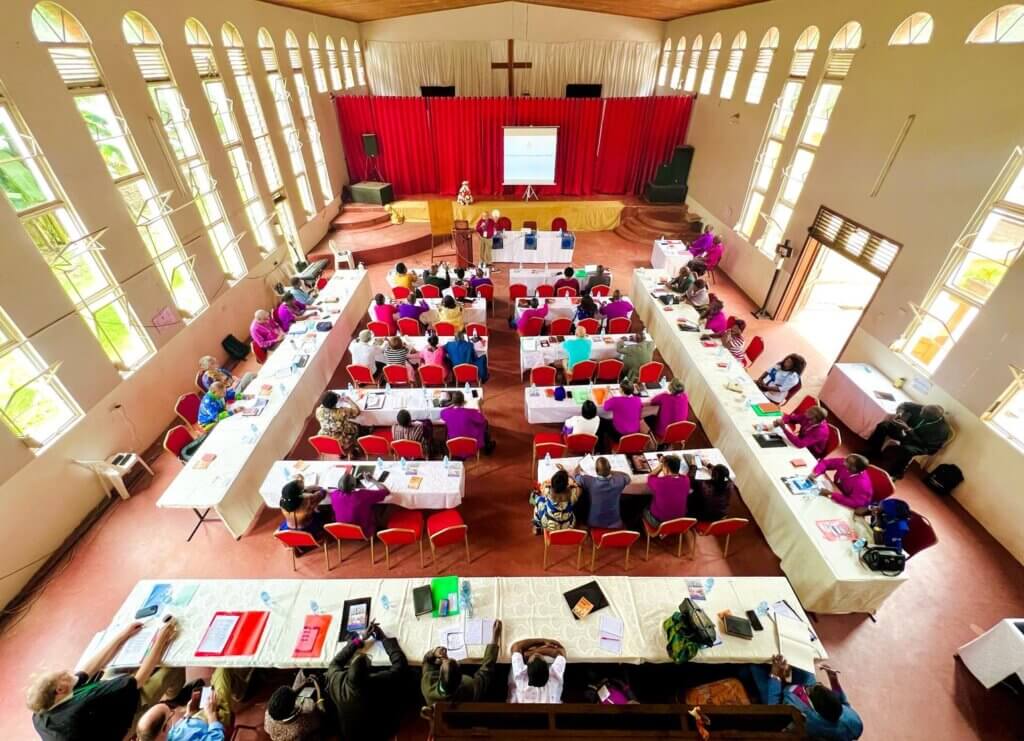
I have just spent a week with over 25 bishops from the Global South—from Singapore and Myanmar to the sub-Saharan provinces of Congo, South Sudan, Uganda, Angola, Indian Ocean, and the Horn of Africa. I have been to many bishops’ training events, but this event was not only comprehensive in addressing the needs of some of the poorest dioceses in Africa but also included incredible testimonies of persevering faith despite violence, famine, and poverty. Over the past week, I have watched bishops break down language barriers as they broke bread together and shared their deepest needs. The bishops’ wives experienced the same during their similar program. I saw these relationships blossom and, with that blossoming, the hope of South to South diocesan partnerships for evangelism, discipleship, mission, and economic development under the covenantal structures of the Global South Fellowship of Anglicans (GSFA).
Retired archbishops are not always in close relationship with current archbishops, so it was an incredible testimony to see the expressions of love, respect, and encouragement that Archbishop Stephen Kaziimba and Archbishop Henry Luke Orambi, current and former archbishops of Uganda, shared with each other. The Chairman of the Global South, Archbishop Justin Badi, spoke eloquently about the reasons why we are living for such a time as this when true Anglican identity and communion must now be passed on to the Global South as a model for the rest of the Communion. While there was genuine lamentation that the Church of England chose to break communion with false teaching (particularly on the prayers for and the blessings of same-sex unions) the bishops looked forward to the shared faith and inheritance of the 16th century Anglican reformers and the promise of genuine communion that the covenantal structures of the GSFA now offer. In addition, every morning Bishop Rennis Ponniah of Singapore offered us a feast for the soul in his exposition of 2 Timothy and St. Paul’s exhortation to Timothy on building the Church as a leader of his flock and a disciple of Christ.

I was privileged to lead a workshop explaining these covenantal structures and commending them to the bishops. I am confident that the American Anglican Council (AAC) will continue to play a vital role in the launch of this reset Anglican Communion when we meet in Alexandria, Egypt June 11-15, 2024. There, we will launch the covenantal structures and their ecclesial bodies: the Primates Council, the House of Bishops, the Faith and Order Commission of the House of Bishops, and the General Assembly and its board. Much work remains to be done before the launch, but we are confident that we will be ready to go in June.
How long we have awaited this day!
Meanwhile, the only response from the Canterbury-led Communion and the Episcopal Church are found in two resources I commend to you below. The first is written by Anglican Futures, describing the Archbishop of Canterbury’s new dressing for an old canard that somehow, we can have communion and embrace pluriform truth. This time he is calling it variable geometry. I commend Anglican Futures for their explanation of Canterbury’s continued word play to mask its attempts to control the Communion.
In these efforts, they are aided by the Episcopal Church. We are grateful to the Relay Trust for their report on the donations given by Trinity Church Wall Street over the course of three years. This information was presented to the GSFA bishops during a workshop on economic independence and sustainability.

Trinity Wall Street Grants to Global South Dioceses
June 2023 – June 2020 (USD)


It is interesting to note that the most money is being given not to the poorest dioceses in the Anglican Communion but rather to dioceses in places like Kenya and Tanzania to blunt the efforts of the Global South to participate in the covenantal structures. Despite its rhetoric, neither Canterbury nor the Episcopal Church is willing to surrender their dominance of the Anglican Communion’s Canterbury-led structures.

And so, following the Bishops Formation Conference, I stayed on to help all of the diocesan chancellors of the Church of Uganda gain a deeper understanding of these structures, Anglican canon law, decision-making, and the ways to address problems the Church of Uganda faces. Canon law is not deeply studied by many, and yet it is key to ordering our Church to reflect the holiness of God and his goodness enabling the Church to proclaim Christ faithfully to all nations.
At this chancellors’ conference, we were received warmly by Archbishop Kaziimba, the provincial chancellor and deputy provincial chancellors, and the chancellors of the diocese. We have spent two days of deep fellowship as a learning community. The provincial chancellor, the Hon. Naboth Muhairwe, said in his opening address: “This is the maiden voyage for us as chancellors to deepen our learning of Anglican canon law and to build fellowship with one another.”
During the first day, we surveyed the sources and definitions of canon law, church discipline, and how Anglicans make decisions about doctrine, discipline, and order. I also led a devotional on Isaiah Chapter 6 about discovering God’s call through a fresh vision of who He is. We’ve received multiple invitations from bishops and chancellors to return, and we are grateful for the opportunity that the Church of Uganda has given us to come alongside some of their most faithful and diligent leaders as they do gospel ministry.
During the Bishops Formation conference, the Rev. Dr. Ashley Null reminded us that it was the African church fathers, Saints Augustine and Cyril, who shaped our understanding of justification by faith alone in Christ alone and of the sacraments. Null has found through his study of Thomas Cranmer’s notes countless examples where Cranmer drew upon Augustine and Cyril, as well as other church fathers, to shape the heart of our own English Reformation. This was Africa’s first contribution to the reformed English Church as she escaped the false teachings of the medieval Roman Church. In a very real way, from 2003 to 2009, the West experienced a second rescue when African Anglican provinces took us in as theological refugees from churches that had embraced false teaching. Now, through the embrace of both GAFCON and the GSFA Covenantal Structures, we are in the midst of the third great African rescue of Anglicans in the West.
Thanks be to God!


